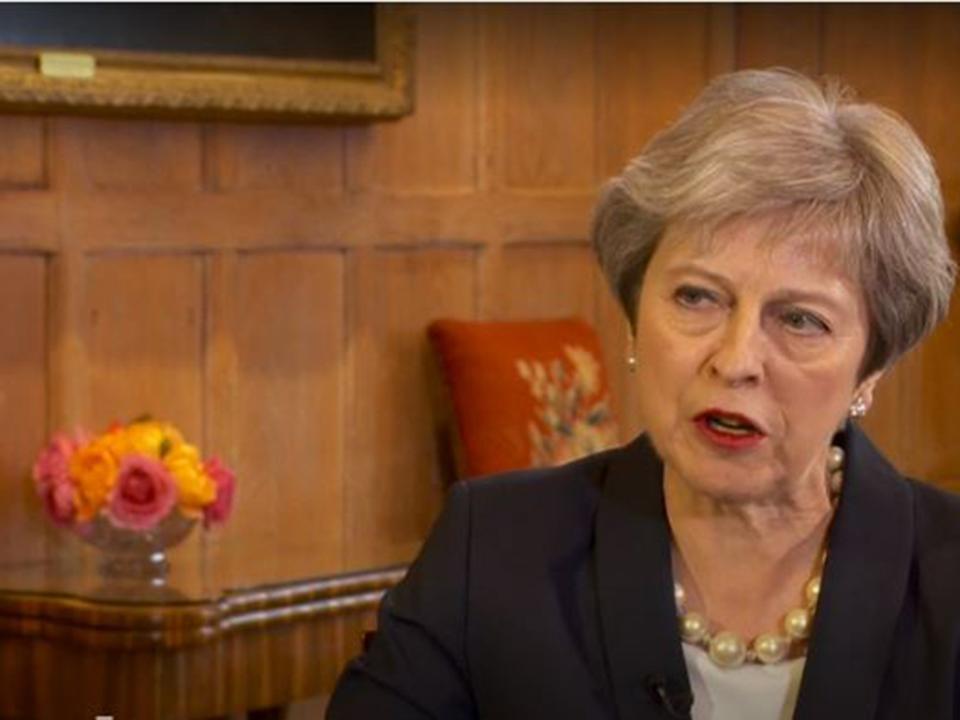Don't be fooled by Theresa May's £20bn NHS funding pledge – it's just a distraction to win her some much needed goodwill
If one symptom of a morbidly diseased government is the ability to make you nauseous when it does something right, this one may be terminal.
On the surface, and beneath it, Theresa May’s announcement of substantially increased NHS funding is obviously good news.
Nothing will compensate, admittedly, for the almost eight years of callous deprivation. Without access to time-travel technology, there is no way to make it up to the stroke victim left untreated for 16 hours on a trolley in a hospital corridor, or to corpses robbed of a year of decent life because a chemo drug was deemed an unaffordable luxury in their particular post code.
For all that, to not welcome the news you’d have to be a frothingly bananas right winger in the Christopher Chope mould, or a Labour frontbencher fretful that the odds against ever sitting in the back of a ministerial car have just lengthened.
Time will tell whether May’s promise that in 2023 Britain will spend the same proportion of national income on health as France does now will be honoured. With grandiose announcements of the kind, the fine detail tends to contain some devilry.
But even if this proves a rose-tinted ambition rather than a realisable vow, it would be too churlish to deny that the aspiration to do the right thing is preferable to proudly continuing to do the wrong one.
Where the admiration is replaced by the craving for a powerful anti-emetic is with May’s suggestion that the “Brexit dividend” will fund an increase styled as a weekly £384m. The timing and blatancy of the attempt to outdo the £350m on the fabled Brexit bus reveals her thinking. This is not a generous 70th birthday present to the NHS. On the eve of another frantic week of Brexit votes in the Commons, it is about hijacking what she knows to be a transparently fake claim, and making it her own.
Sarah Wollaston, the GP and Chair of the Health Select Committee, was swift to point out that the notion of a Brexit “dividend” rejuvenating the NHS is “rubbish”. As for Paul Johnson of the Institute for Fiscal Studies, he was equally quick to remind us that, by the government’s own estimates, Brexit-related reduction in GDP growth is costing £350m per week, or an annual £15bn.
What May has done is to take a political necessity, and try to pass it off as a brave personal choice by dressing it in the transparent rags of fake altruism. She caved in at the last moment to Jeremy Hunt, the health secretary and professional survivalist, who last week gave David Davis a little time off by being the one to threaten resignation. Sajid Javid, who is after more cash for policing, is the 2-5 odds-on chance to be the next to threaten the flounce.
Now, facing another series of squeaky bum time parliamentary votes, May seeks to flip another display of abundant weakness into a show of strength.
It may even work. The snap reaction from that pom-pom-waving Brexit cheerleader, The Daily Telegraph, was to interpret the pledge as “locking Britain into Brexit”. The isolationist press will sell this as conclusive proof of the untold riches awaiting beyond the wealth-sapping shackles of the EU, and some of the punters may buy.
Needless to say, it is nothing of the sort. Had the UK economy continued on its pre-referendum growth trajectory, rather than flatlined as it has, the additional revenues would fund a far larger increase than this one. The hike in spending, as May reluctantly admits, will have to be funded in large part by some form of tax rise (and/or tax allowance freeze).
But you needn’t have a PhD in Trump Studies to appreciate that Goebbels was on to something when he observed that if you keep repeating a big enough lie, people will eventually come to believe it.
If this one buys May a little more time on the Brexit tightrope, that won’t and shouldn’t bother those who come to benefit from an improved health service. Admittedly, it doesn’t address the most demanding long-term fiscal challenges facing the NHS, such as how to pay for the explosions in obesity and the ranks of the chronically unwell elderly. It is a blood transfusion rather than a cure – though for an ailing old timer on the brink of multiple organ failure, that’s plainly a great deal better than being left to slip into a coma.
But don’t be deceived by the specious Brexity figures, or by the personalised stuff about May wanting to repay the NHS for treating her diabetes. Unlike those who have suffered and died for want of adequate treatment since she came to power, she is more than wealthy enough to have paid for her own. If she is really that grateful, why did she stoically resist the medical profession’s increasingly desperate pleas for more money for almost two years?
She can play Lady Bountiful and the Brexit Bonanza card as she pleases, and as I said it might even work. But this is an act of manipulative opportunism primarily designed to save not the NHS, but herself.

 Yahoo News
Yahoo News 

